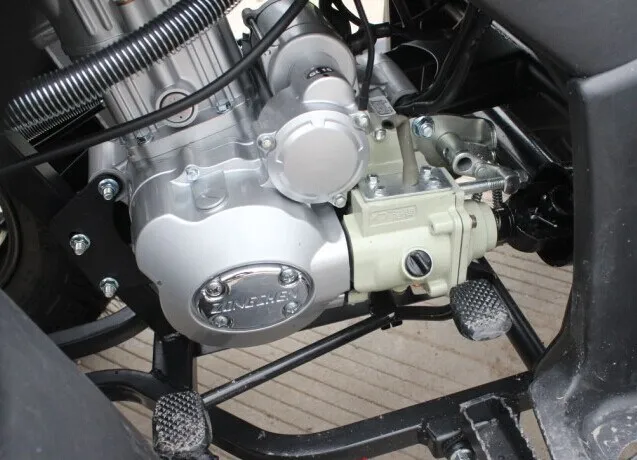ATV Riders Forum > Sport ATV Model Information > Honda TRX 400EX & 400X ATV Info > Ticking Sound...?
PDA
View Full Version : Ticking Sound...?
2006-400ex
01-19-2006, 02:32 PM
I was riding today.. had the quad about a month now.. ive changed oil in it once.. i went up 2 my friends houes for 2 hours maybe and let my 2006 400ex sit there... when i took off i noticed a ticking sound of some sort from the motor.. im wondering is this my valves..??(haven't been adjusted yet).. or something bad??? i checked oil b4 i took off and it was full and almsot new looking still..
thebigsd
01-19-2006, 03:04 PM
i bet its your valves i have a 00 440 ex and my valves have been ticking pretty loud i have taken it in several times to get them adjusted and it still ticks so im going to buy some new ones here in the future
Hondaman90
01-19-2006, 04:10 PM
Sounds like its either the timing chain or the valves.
2006-400ex
01-19-2006, 04:14 PM
i called local honda dealer and he said its either my "decompressor" or my valves .. im hoping its valves .. iuno
troutman561
01-19-2006, 04:37 PM
all 400ex's have a ticking to them tho, it could be nothing but how it is, but then again im not there to hear it so i couldnt tell ya if its louder than usual
NCexRider
01-19-2006, 04:49 PM
It is your valves. When you changed the oil the first time (after the first 20 hours) you should have had your valves adjusted. Your valves seat during the break in process and must be adjusted after 20 hours as I said before. This is a crucial service to the future performance of your motor.
rneal
01-19-2006, 05:58 PM
The ticking is from your timing chain being loose. The chain is either stretched or the tensioner is stuck or possibly bad.
Bullrider21
01-19-2006, 06:00 PM
Your Quad is supposed to tick a little.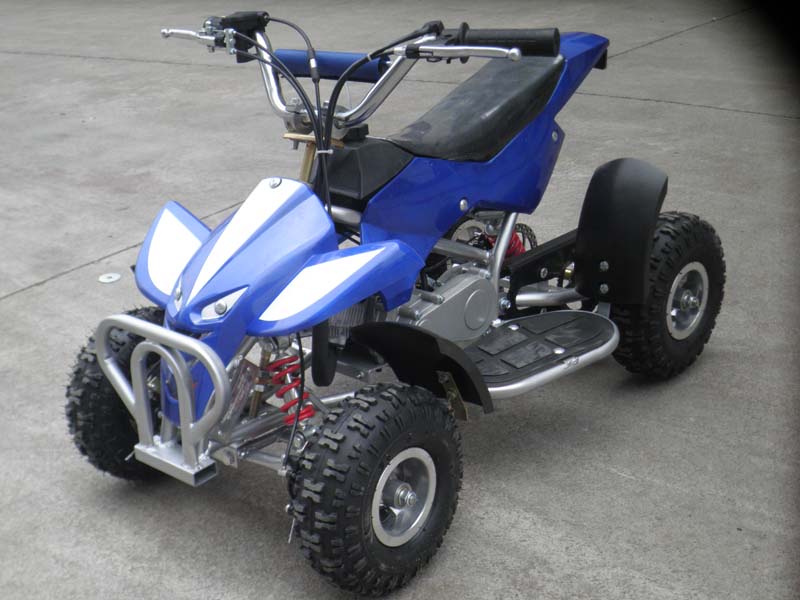 It is actually really bad news if you dont here a tick. Get a set of feeler gauges and check them it will take you about half an hour its quick and easy
It is actually really bad news if you dont here a tick. Get a set of feeler gauges and check them it will take you about half an hour its quick and easy
NCexRider
01-19-2006, 06:12 PM
Originally posted by rneal
The ticking is from your timing chain being loose. The chain is either stretched or the tensioner is stuck or possibly bad.
I doubt that on a one month old 2006 400EX. Ask any authorized technician and they will stress the importance of a post break-in valve adjustment. I just bought my EX in September and my valves were rattling quite a bit before I serviced it.
bmurray
01-20-2006, 06:51 PM
valves.
just changed oil and adjusted my 05. Had about 10 or so hours on it. Much quietter now. But these XR400 engines do tick, just normal.
2006-400ex
01-20-2006, 07:17 PM
i took it 2 honda today and he said it didnt sound like valves or the decompressor.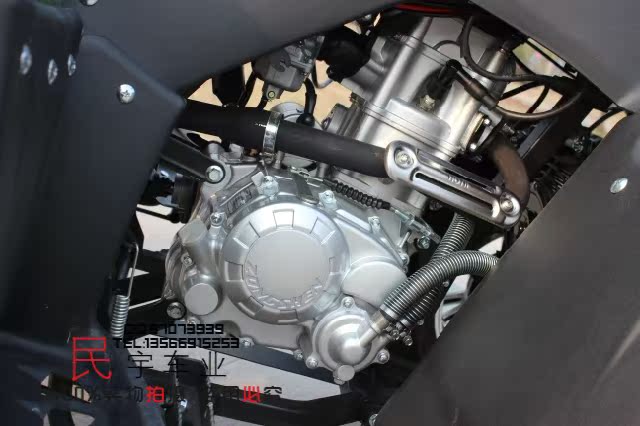 . unless it was stuck.. he said he also heard like an airleak somewhere in motor or soemthing iuno.. its all getting fixed uner warranty.. kinda sad.. i baby the 4wheeler and take awesome care of it.. and its in the shop more than i have rode it prolly lol... o well .. leaste its getting fixed freely..
. unless it was stuck.. he said he also heard like an airleak somewhere in motor or soemthing iuno.. its all getting fixed uner warranty.. kinda sad.. i baby the 4wheeler and take awesome care of it.. and its in the shop more than i have rode it prolly lol... o well .. leaste its getting fixed freely..
m1ke
01-20-2006, 07:25 PM
far as i know ticking is normal man..
TRX_450
01-20-2006, 08:41 PM
mine does that when the oil needs changed...could be valves...and another thing is if i jus get on mine and giver hell itll tick....try warmin it up b4 u ride...no matter how hot it is outside..give it 2-5 minutes to warm up properly and see if that helps
2006-400ex
01-20-2006, 10:07 PM
NOOO this is a "loud" and distinctive ticking noise.. i know the sound they normally make.. but this is more noticable and it kinda sounds like airs leeking when i give it gas .. from somewhere iuno
yokeracer
01-21-2006, 04:25 AM
My 04 is 2 months old. I changed the oil last week, after filling her back up and starting the bike up, I heard a distinctive ticking noise too. I knew it had to be valves (brand new bike). So I read and re-read the article here about adjusting valves. It was easy as hell, took about half an hour. Sounds like it use to New:D. ....I just didn't have a way to get my bike up to the dealer for my first sceduled maintainance. Don't think I'll ever take it now. Should get my warranty money back:grr:
I changed the oil last week, after filling her back up and starting the bike up, I heard a distinctive ticking noise too. I knew it had to be valves (brand new bike). So I read and re-read the article here about adjusting valves. It was easy as hell, took about half an hour. Sounds like it use to New:D. ....I just didn't have a way to get my bike up to the dealer for my first sceduled maintainance. Don't think I'll ever take it now. Should get my warranty money back:grr:
but seriously dude, read that article, it maybe somethin you would want to tackle next time u need a valve job.
yokeracer
01-21-2006, 04:28 AM
here's a pic of the bike when I was doin the valves.
My van was my garage that day.:D
2006-400ex
01-21-2006, 03:50 PM
i think it might be my carberator boot since u can hear an "air leak".. and ive noticed an amount of power loss.. so i hope thats just it
Rico
01-22-2006, 06:57 AM
I love how people jump right to telling someone the motor's blown, the timing chain is wore out, the timing jumped, the cam broke in half, blah, blah, blah. ..:rolleyes:
..:rolleyes:
I see you live in OH. The weather is cold, the oil is not at the top of the motor so it will tick a little until the oil warms up and begins to flow properly. bad/old oil can cause this and valves needing adjusted will cause this. I see you have an 06 so it's probably just time for the first tune up. PUt some synthetic oil in it and it will help the motor a lot.
Also if the airboot comes loose from the carb you'll have more than just power loss it'll barely get out of it's own way. It will basically run like crap and you'll know 100% that it's loose, I garauntee that.
yokeracer
01-22-2006, 08:37 AM
Originally posted by Rico
I love how people jump right to telling someone the motor's blown, the timing chain is wore out, the timing jumped, the cam broke in half, blah, blah, blah...:rolleyes:
I see you live in OH. The weather is cold, the oil is not at the top of the motor so it will tick a little until the oil warms up and begins to flow properly.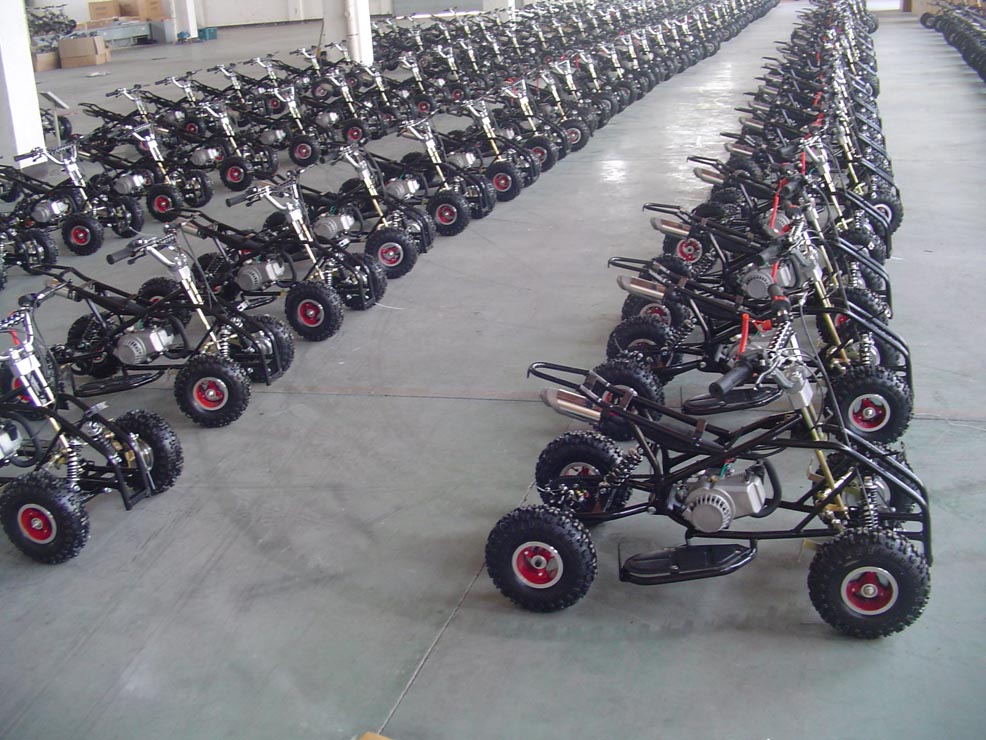 bad/old oil can cause this and valves needing adjusted will cause this. I see you have an 06 so it's probably just time for the first tune up. PUt some synthetic oil in it and it will help the motor a lot.
bad/old oil can cause this and valves needing adjusted will cause this. I see you have an 06 so it's probably just time for the first tune up. PUt some synthetic oil in it and it will help the motor a lot.
Also if the airboot comes loose from the carb you'll have more than just power loss it'll barely get out of it's own way. It will basically run like crap and you'll know 100% that it's loose, I garauntee that.
...:huh when I changed my oil, it was warm outside. Started bike, loud ticking (oil level was where it's suppose to be). The next day, it started snowing. Two days later, still cold, decided to adjust myself (no way to get to dealer). Did the deed. Right when completed, rolled her out of the van and started her up. Mind you, it was cold as he11. She ran with no ticking at all, all but the normal sound.
....All I was sayin is that since his bike is brand new, he could be needing his first maintainance inval like me.
2006-400ex
01-22-2006, 10:18 AM
i changed oil myself and last time i took it in for recall they said they "heard for the valves" and they sounded perfect. . hah.. but its in the shop now getting fixed.. its a LOUDer ticking noise than normal.. i know the honda tick:P lol but its ganna be for free.. i have brand new honda oil or w.e it is in it.. still looks new ..and full.. also been putting premium gas in it .. read the manual and itsays not to run lower than 87 octane.. which is unleaded in them
. hah.. but its in the shop now getting fixed.. its a LOUDer ticking noise than normal.. i know the honda tick:P lol but its ganna be for free.. i have brand new honda oil or w.e it is in it.. still looks new ..and full.. also been putting premium gas in it .. read the manual and itsays not to run lower than 87 octane.. which is unleaded in them
van0000x
01-22-2006, 05:39 PM
PG. 82 of the clymer manual addresses a "clicking sound": This may be caused by a decompressor unit failing to disengage. Put a wrench on the crankshaft and rock it back and forth abruptly, this should release the decomressor unit if it is stuck.
Powered by vBulletin® Version 4.2.1 Copyright © 2023 vBulletin Solutions, Inc. All rights reserved.
ATV Riders Forum > ATV Riders Mechanical Section > ATV Powertrain > What causes engine tick..
PDA
View Full Version : What causes engine tick..
nakomis0
04-30-2006, 06:11 PM
What are reasons for engine ticking. I messed something up. Its not the crank, or any bearings.
I messed something up. Its not the crank, or any bearings.
Its in the head... Valves, cam, rockers... not sure. I heard possibly even a loss off oil pressure can cause a tick.
I'm going to open it up and look at the cam lobes, rockers and valves. Don't know exactly what to look for but I hope I know when I see it.
So what causes engine tick.
This is an overly loud tick for sure. Something definately gave out. I'll check valve adjustment first. But I'm pretty confident its something else.
Glamis400ex
04-30-2006, 06:16 PM
could be your cam chain or your valves not adjusted right.
Glamis
rooster300ex
04-30-2006, 06:38 PM
Maybe some spec is off on the valve train? After market cams make a 400ex tick.
Ex'r Marlin
04-30-2006, 11:03 PM
I noticed going with a more aggressive cam that the "ticking" was more noticeable.
Also, if the valve adjustments are off, that should make some abnormal ticking.
Also, if there is an exhaust leak from your engine to your header, that will make a noticeably loud ticking noise.
Good luck!:)
JW450R1
05-01-2006, 04:41 AM
i could be a few different things.regrind cams don't last very long.
timming chain could be stretched,valves out of adjustment.rocker arms could be worn.try starting it up with the valve cover off for a few seconds to try to listen to see if the noise is in the valves/cam area.
nakomis0
05-02-2006, 02:37 PM
Its in the cam, valve area. I wont get to open it up till this weekend.
I lost an exhaust bolt, and my exhaust muffler rivets started to fall apart. I still had to ride it another 40 miles to get back. At the last 10 miles it just all of a sudden started ticking loud. Like someone fliped a swtich it was that quick. Could of been running lean with the loose exhaust.
I 'll let you know when i find out what the problem is.
Ex'r Marlin
05-02-2006, 02:41 PM
Originally posted by Ex'r Marlin
[B].... if there is an exhaust leak from your engine to your header, that will make a noticeably loud ticking noise.
nakomis0
05-02-2006, 05:15 PM
Originally posted by Ex'r Marlin
That would be nice. I just aint' ever heard a knock like this before. Even when I had loose rivits and no xhaust packing.
400exrider707
05-02-2006, 05:40 PM
Originally posted by Ex'r Marlin
He said his rivets fell out, that would be on the silencer not the headpipe to motor contact point.
Also most aftermarket cams make really really loud ticking on the 400ex, espcecially hotcam stage 1, but you said it did it all of a sudden? I would definitely take a look at that, your probably going to have to yank the valve cover off and inspect.
Ex'r Marlin
05-02-2006, 06:39 PM
Hopefully he can get it corrected.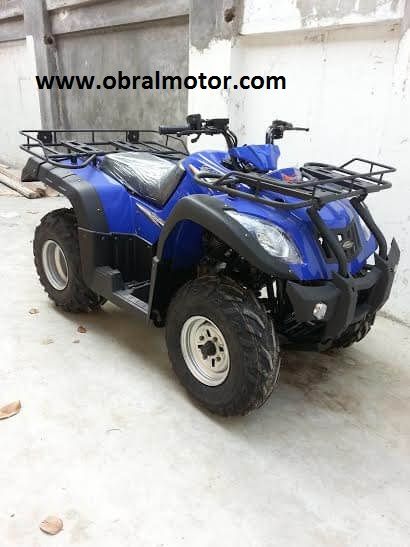
I don't think the loose rivets would add to any "ticking" noise in the engine, but if there is a missing nut on the header to the engine, that can make a very loud ticking noise that sounds like the whole engine is out of wack.
I did notice that he said he had a missing bolt on his exhaust. I assumed he meant the nut missing on the header at the engine. My bad. Sorry.
Good luck!:)
redrider9045
05-04-2006, 06:56 PM
Timing
Powered by vBulletin® Version 4.2.1 Copyright © 2023 vBulletin Solutions, Inc. All rights reserved.
| |||||||
| Home » Take a hit: why a single-cylinder ATV is not afraid to drown? Anyone who has delved deep enough into the subject of ATV travel has heard the word water hammer.
Some quad bikers try not to get into puddles at all, driving as far as possible and denying themselves the pleasure of mixing mud. Better than repairing the engine later! But small single-cylinder engines are almost not afraid of water, confidently coping with bathing. Engine water hammer occurs when a large amount of liquid enters the combustion chamber at the same time. Oil, antifreeze or plain water - it doesn't matter, any liquid is incompressible. If its amount exceeds the volume of the combustion chamber at top dead center, the piston rests. This is where what we used to call water hammer happens. In multi-cylinder engines, the piston that has rested in the water cannot stop the engine - the inertia of the crankshaft and the working pistons of neighboring cylinders continue to push the stuck piston.
Most often, the connecting rod bends or breaks, in the latter case it also breaks through the cylinder wall with a piece of debris. Sounds scary! However, it is almost impossible to “catch a water hammer” on a single-cylinder engine, especially a small one. The fact is that he simply does not have other cylinders that can create additional pressure. All that puts pressure on the piston resting on the water is the inertia of a relatively light crankshaft. Theoretically, water can harm a single-cylinder engine, but in practice this happens extremely rarely. It's easy to recognize a motor that has swallowed water - try to start it. A starter, neither electric nor mechanical, will not be able to budge a piston that has rested in liquid. That is why the first thing you need to do is unscrew the spark plug and turn the engine with the starter, letting the piston push the water out of the cylinder.
Water usually enters the engine through the intake, so the carburetor must be removed and cleaned. But don't be in a hurry to hit the road - during the swim, water could get into the oil. Mixed, such an emulsion will not lubricate the nodes well. Therefore, the reanimated motor should be allowed to idle for an hour or two, allowing the water to evaporate from the oil.
The latter will have to be changed in any case, but if you do not first remove the water from the oil, the replacement will not help to remove the emulsion. Water hammer once again confirms that simplicity is a guarantee of reliability, which will allow the ATV to get to the most impassable and unexpected places.
|
Surely every owner of an ATV now and then has the idea to fill - purely for economic reasons - ordinary automobile oil into the ATV crankcase. Well, what, after all, in principle, the all-terrain vehicle engine is not much different from the “fiery heart” of the car. However, experienced quad mechanics know how destructive a purely automotive lubricant is to an ATV motor.
Well, what, after all, in principle, the all-terrain vehicle engine is not much different from the “fiery heart” of the car. However, experienced quad mechanics know how destructive a purely automotive lubricant is to an ATV motor.
There is a common belief that all oils are poured from the same barrel, and therefore it does not matter what kind of lubricant to use: cheap automotive or special and expensive for ATV. In reality, oils for car engines are very different from oils for quadrics.
To start with, ATV engines always operate under very difficult conditions. Elevated temperature conditions (due to a radiator clogged with dirt) and prolonged loads lead to the fact that ordinary automotive oil poured into an ATV engine quickly loses viscosity, becoming more liquid, and therefore does not provide the necessary pressure in the system. Which promises a quick death to the motor.
The second feature of the ATV "dvigla" - work at high speeds. For example, for a car, a range of 2500-3500 rpm is considered the average norm. But the ATV is just starting to take off when these thresholds are reached. The average operating mode is in the range of 6000-7500 rpm.
But the ATV is just starting to take off when these thresholds are reached. The average operating mode is in the range of 6000-7500 rpm.
And ordinary car oil is not able to work for a long time in such conditions: it not only loses its lubricating properties, but begins to burn out, leaving carbon deposits on the insides of the engine and forming sludge (thick deposits) that clogs the oil channels of the internal combustion engine. Then there is a chain reaction: piston rings lie down, the engine begins to “eat” oil with terrible force, and ultimately the piston stands up in a dry cylinder with a stake.
But that's not all. Most modern ATV engines have a so-called oil-bath clutch (also called a “wet clutch”). Ordinary automotive oil is a killer fluid for clutch friction linings. For the normal operation of the engine with a “wet clutch”, the oil requires a whole range of additives, thanks to which the clutch does not slip and its friction clutches are not destroyed.
These additives are only found in motorcycle and ATV engine oils. For example, Liqui Moly ATV 4T Motoroil Offroad 10W-40 synthetic engine oil was specially created for heavily loaded off-road motorcycles. That is, it can be poured both into the engines of side-by-side ATVs (all-terrain vehicles with an automotive layout of controls), and into the engines of cross-country motorcycles, pit bikes and enduros.
This grease is universal, and thanks to a complex of special additives, it is suitable for engines with wet and dry clutches, air and water cooling, and even for engines that have a wet type CVT. The viscosity characteristics of the product ensure stable operation of the lubrication system motor in any season. In addition, Liqui Moly ATV 4T Motoroil Offroad 10W-40 has excellent resistance to high temperatures, water and dust.
At the same time, before buying even a specialized oil for an ATV, be sure to study the equipment manufacturer's recommendations for tolerances for temperature, viscosity and other characteristics. After all, in 70 percent of cases, the engines of the apparatus for "mud-mixing" have one more nuance in the form of a gearbox combined with the crankcase. That is, with such a design, the gearbox is lubricated not with gear oil, but with the same oil as the crank mechanism.
After all, in 70 percent of cases, the engines of the apparatus for "mud-mixing" have one more nuance in the form of a gearbox combined with the crankcase. That is, with such a design, the gearbox is lubricated not with gear oil, but with the same oil as the crank mechanism.
In addition, ATV power packs do not have alternators. The current for charging the battery and feeding the on-board systems is generated by a magneto, which in most cases is not “dry”, but “wet”, that is, it is located inside the engine and is washed by engine oil from all sides. It is no secret that the magneto winding is covered with a thin layer of varnish, which is washed out by interacting with ordinary automotive oil.
Thus, the operation of the quadric on car oil will inevitably lead to the fact that the magneto closes over time and it stops producing a charge. Replacing this unit, depending on the model and brand of ATV, can easily cost a pretty penny. If you use a special oil for ATVs, then there will be no problems with washing out the varnish from the magneto winding, since such a lubricant contains a special additive that is so necessary to protect the varnish.
By the way, in the German Liqui Moly product line there is a motor lubricant suitable even for exclusive motors for which oil with a viscosity of 10W-40 is not listed by the manufacturer. For highly forced and turbocharged ATVs, oil with the maximum degree of protection is usually used. Yes, it costs more than the average ATV lubricant, but it guarantees the smooth operation of the most modern engines. Synthetic engine oil for 4-stroke engines Liqui Moly ATV 4T Motoroil 5W-50 is the "top".
After all, the complex of anti-wear additives and the base base ensure the correct and trouble-free operation of the ATV or UTV engine in the widest range of temperatures and loads, providing maximum performance and engine protection under any, even extreme, operating conditions.
The use of such a lubricant makes it possible to ensure high reliability of ATV units and ease of starting the engine even at very negative temperatures. It, meanwhile, easily mixes up with all standard oils.